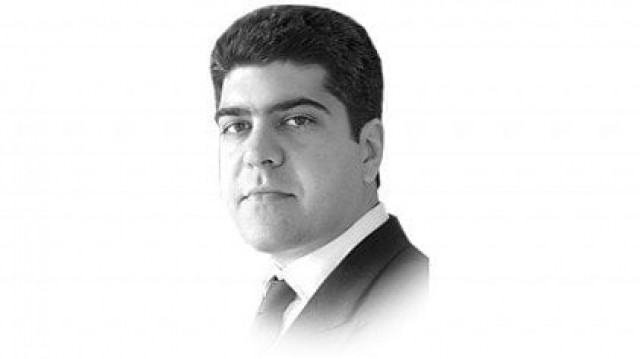On cycling

“Haven’t you got the memo,” I’ll casually retort, “Pakistan is a hot country!” I used to take the don’t-you-feel-hot question with a sense of humour when I was first asked about it. Eventually, I took to pointing out how outdoor activity late in the afternoon wasn’t a totally ridiculous idea. After all, people play cricket, tennis, golf, take their pre-dinner constitutional. They’re never asked whether it’s hot, as if the activity they are undertaking is singularly unsuited for the local climate.
It’s been over a year and Critical Mass Lahore (and Islamabad and Karachi) is going strong through its second summer. It was during the last summer that it occurred to me just how ridiculous the question was. Now, whenever I hear it, I have to make an effort to restrain myself from asking just how far and for how long people have to be out of contact with their very own environment before they think asking a question like “garmee nahin lagtee” is reasonable.
There’s a lot of things I’ve learned cycling around Lahore. First, it’s actually not that large a city (you can get around most places in under 45 minutes). Second, though not really related, is that the transport sector in Pakistan consumes over 50 per cent of the oil imported into the country (in contrast, IPPs take up about 30 per cent).
Cycles don’t require petrol or diesel and, If we used more of them, not only could we improve air quality in our cities, we could actually alter the balance of payments to our advantage. Third, that there are somewhere near 1.8 million registered motor vehicles in Lahore, and the vast majority of these are privately owned — there is almost no public transport: for a city of eight million people, there are less than 1,000 buses.
I’ve also learned some other, slightly under-bellyish things as well. For example, while Lahore isn’t that large a city, it’s a) large enough and b) also expanding rapidly. Nowadays, not having an automobile or access to one for the work-home commute can determine where you work and, by extension, how much you earn. Since there’s next to nothing by way of public transport, immediately half of the city’s population is effectively rendered immobile.
With less than half the city’s population actually on its streets, its seems odd that we have the traffic and congestion we do. But I’ve learned the congestion is actually because of all the cars the minority elite drives to and from work, to buy groceries, to go to the club and so on. Less than 20 per cent of the people of Lahore have access to private automobiles.
The congestion, quite simply put, is because the urban elite refuse to buckle down and use public transport or consider things like cycling as an effective form of transport. Having asked literally thousands of the urban elite to consider joining Critical Mass Lahore, I can gauge just where the resistance comes from: from being so totally removed from their own environment, and for so long, that they actually forget where they live.
It’s common knowledge that urban elite in developing countries cocoon themselves from their environment, whether that be their physical environment (they don’t drink the same water, for example, and they rarely breathe the same, polluted air) or built environment (witness private housing estates, clubs and “rights of admission reserved” restaurants). One of the more forceful ways of voicing your disapproval, of course, is to get on a bicycle.
Published in the Express Tribune, May 29th, 2010.















COMMENTS
Comments are moderated and generally will be posted if they are on-topic and not abusive.
For more information, please see our Comments FAQ